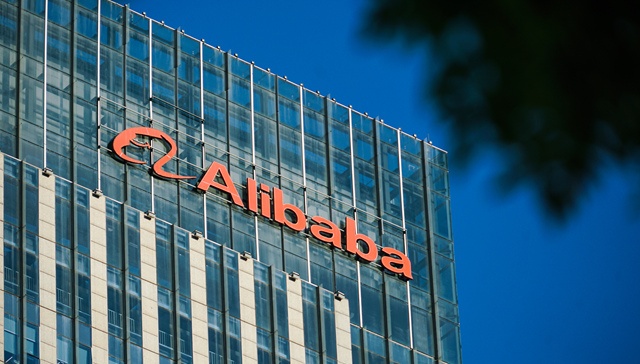Alibaba YuanJing‘s Layoff: Tactical Adjustments Amid Fading Metaverse
It is reported that Alibaba's Metaverse team laid off a large number of employees and then adjusted the team's strategic focus to welcome the "dimensional universe era" after the Metaverse cools down.
On October 31, it was reported that Alibaba Yuanjing team is undergoing significant layoffs, affecting teams in both Hangzhou and Shanghai, with many employees reporting that the 31st is their "last day." This follows Alibaba's earlier exit from the YunOS operating system.
In 2021, the concept of the "metaverse" quickly gained popularity, prompting Alibaba to establish a wholly-owned subsidiary, Yuanjing Shengsheng, with a registered capital of 10 million RMB, aiming to seize opportunities in metaverse-related businesses. From the start, it set a goal to "become the Android system of the metaverse era," subsequently investing substantial resources.
As it developed, the team focused on the real-time high-performance computing capabilities required for the metaverse, deeply integrating innovative technologies such as 3D, AIGC, and real-time cloud rendering, providing a full-stack service that encompasses infrastructure, technical tools, innovative applications, and commercial operations.
According to publicly available information, Yuanjing has established over 2,800 cloud service nodes nationwide and deployed real-time cloud rendering services, striving to expand coverage and solve the "last mile" problem for users.
Over the past three years, this team, which had invested billions and employed hundreds of people, has now faded into obscurity amidst the winter of the internet industry.

In 2019, Alibaba Cloud’s gaming division was established to serve the gaming, cultural tourism, and certain business sectors, with Yuanjing initially serving as the technology provider focused on real-time cloud rendering and streaming.
Six months after the division's inception, Alibaba released its first PaaS platform, providing PC games with a user experience similar to that on Android, marking Yuanjing's entry into the cloud gaming business.
In September 2021, Alibaba officially launched Yuanjing, claiming it to be China's leading metaverse cloud streaming operating system and metaverse application service platform for the new generation of the internet. Reports indicate that Yuanjing's rendering engine is industry-leading, capable of supporting 100,000 concurrent users. Additionally, Yuanjing collaborated with automotive companies to apply digital twin technology for production line optimization, boosting production efficiency by 15%.
The following month, Alibaba announced the launch of a cloud gaming developer platform, asserting that "cloud gaming will be a starting point for the metaverse." Leveraging Alibaba Cloud's global data center network, Yuanjing's gaming services achieved a significant latency advantage, averaging below 40ms. In early 2023, the team collaborated with several game manufacturers to bring AAA titles to the cloud.

Observing the rapid iteration of AI technologies, Yuanjing's CTO Guo Kuangye believes that advancements in technologies such as Diffusion, LLM, and NeRF significantly drive content creation and generation in the metaverse. Yuanjing is also enhancing business efficiency through the extensive use of AIGC services and has laid out commercial products like AI digital humans.
However, times have changed, and the current development environment of the internet industry is far less favorable. The entire metaverse sector has entered a cooling period. Taking Meta as an example, between 2021 and 2023, the metaverse business contributed a total revenue of 6.4 billion USD but resulted in losses exceeding 50 billion USD.
In contrast, as Yuanjing awaited high-quality technological iterations, it faced unexpected market education costs and challenges in ecosystem development.
Relevant data shows that in 2023, the number of enterprises and customers in the metaverse was only 30% of expectations. Even when offering free technical validation solutions, most companies remain cautious. Additionally, factors such as an incomplete toolchain on the Yuanjing platform and narrow commercialization channels have made it difficult for developers to continue investing, resulting in a persistent shortage of developers on the platform.
Faced with internal challenges and external pressures without the means to resolve them immediately, Yuanjing has pressed the pause button.
Insiders revealed that after adjusting its strategic focus, Yuanjing is currently concentrating on two main directions: first, deepening its involvement in the tourism and industrial metaverse by collaborating with leading manufacturing enterprises to create model cases; second, integrating cloud gaming capabilities into Alibaba Cloud as a crucial component of cloud computing.
Although Yuanjing's commercialization process has not met expectations, its technological assets remain valuable. To date, Yuanjing has served over a hundred mid-to-large clients, with total user operation time exceeding 300 million hours, ranking among the top in the domestic industry. Clients include BMW, Xi'an Museum, miHoYo, Wuhan Donghu Cherry Garden, Tmall Mobile, Bilibili, NetEase, 360, and others, while actively participating in major national technological projects.
In the current unpredictable landscape, large-scale layoffs and strategic adjustments seem to have become routine choices across industries to successfully navigate the pressures of market challenges and industry cooling. In an environment where the commercialization outlook is unclear, resource integration, product chain optimization, and the expansion of business models appear to be the keys for Yuanjing to unlock future opportunities.
·Original
Disclaimer: The views in this article are from the original Creator and do not represent the views or position of Hawk Insight. The content of the article is for reference, communication and learning only, and does not constitute investment advice. If it involves copyright issues, please contact us for deletion.